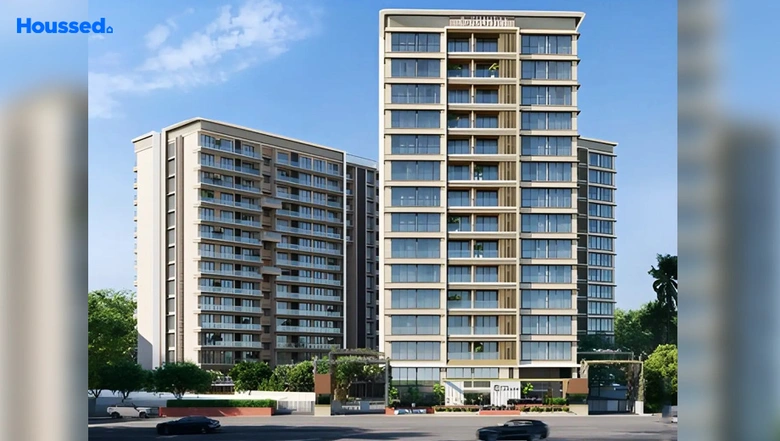How to Calculate Government Valuation of Property?

Here is a quick guide to identifying the government valuation of the property and the key factors that affect the worth of your land.
If you are in the process of buying a home, you are one way to achieving your dream goal. But, with buying properties, there are many things that need to be addressed. Buying a property involves a lot of paperwork and legal considerations. The last thing you want is to end up paying more or an unreasonable amount. How to calculate government valuation of property can be daunting. Over time, there are several land valuation systems have been developed.
Based on the effectiveness, these handful methods to arrive at the worth of these lands are chosen. When you are planning to buy a property, it is crucial to calculate the valuation of the property. This choice is essential as the stamp duty and registration fee depend on it. It can either be based on the valuation pricing or the price decided by the parties, whichever is higher.
Factors in Calculation of Land Valuation
While calculating the property valuation, there is a list of things that need to be addressed. Let's discuss which ones:
Government Ready-Reckoner Rate
The first and significant step that one cannot skip involves obtaining the Government ready-reckoner rate. It is crucial when it comes to calculating the valuation of the property. These are the rates that can also be found on the government's official website. It is best to learn in advance about the government-ready-reckoner rate!
Built-up Area
The rates mentioned in the government ready-reckoner are ideally meant for built-up areas. Therefore, you must have a consideration on built-up areas. Every time you calculate property valuation, you need to know the proper built-up area. If you aren't aware of the built-up area, there are formulas to learn about it. The built-up area is usually mentioned in the deed or index 2.
'Built-up Area = Carpet Area x 1.2'
Floor Height
In the ready reckoner rate determined by the government, floor height also matters. You must know the same floor on which your property is located to evaluate your property properly. In valuation, it is necessary to consider the 'Raise' component in the reckoner rate. Usually, you will find the information on the floor in the Deed/ Index II.
Depreciation
When you ascertain the valuation of the property older than 2, there is a specific deduction. The percentage of ready reckoner value will get deducted for such instances. The age of the property is crucial information. For this, you need to look into the Occupancy Certificate or Completion Certificate, which is used.
Government officials will majorly issue these two certificates. There may be instances where you cannot receive the information on the certificate. In that case, look for the electricity connection date, etc.
Parking Area
Parking, indeed, is an essential component when it comes to calculating the valuation of the property. The parking area allotted to you with the flat must be mentioned in the property valuation, and there are specific statistics. For covered parking, 25% of the ready reckoner value gets multiplied by the area. Whereas, for open parking, around 40% of ready reckoner value multiple with the area.
Terrace Area
In some properties, even the terrace areas are allotted to the residents, along with the flat. Since you have a terrace, this area is included in the calculation of property valuation. In situations where the terrace is adjacent to the flat, only 40% of the ready reckoner value will be multiplied by the area. And, if the terrace area is above the respective flat, there's 5% of the ready reckoner value. And this value gets multiplied by the area.
Garden Area
It counts if your flat is on the ground floor and you've been provided with garden space. The garden area can be anything that you use for gardening or even parking, for that matter. In such a situation, around 40% of the ready reckoner value will be multiplied by the area. And this is, again, another essential tool for the valuation of the property.
Key Areas that Make a Difference in Property Valuation
Land value is affected by many factors. It can either increase the price of the land. Or, it can simply reduce the pricing. These factors are crucial and well-considered before giving the land a price tag. Let us find out the key areas that make a difference in property valuation.
Property Location
Location is a crucial element in determining the land's worth. The scale of development in a particular locality is what determines its worth of it. It can be either worthy or it may lack some element. For example, a large piece of land in a developing locality may not generate good revenue. Compared to a small piece of land in a well-established locality, bringing more money.
Construction Quality
Second in identifying the value of the land is the quality of construction, not just the building quality, but the building standing on the land. In the same locality, a building with premium materials will cost more.
However, a building with normal construction materials will cost less. Building construction on average quality material doesn't seem worth comparing the two. A layman can't identify the quality of the construction. To understand the land quality, an expert is required to figure it out!
Property's Age
Age is the next most important factor, and it also determines or impacts the property's worth. The property was constructed long before; basically, an old construction will cost less. With that, comparing it to a new property with new construction materials in the same location will cost more.
Brand's Value of the Builder
The developer's brand also puts its price value in the property's worth. It impacts the pricing of the builder! A project that a well-known developer develops will cost more. Whereas a builder that isn't well-known will add no value. That is why the brand's value of the builder also contributed to the pricing of the land.
Conclusion
In the current times, ascertaining the value of your property seems to be an important deal. Property valuation only helps the owner and the buyer know whether the value is worth it. When a seller plans to sell the property, they should be sure they are charging a fair price.
And the value of your property must also seem reasonable in the eyes of the government. When you comply with the guidelines set by the government for property valuation, you make the right move. You judge the pricing of the asset legally to get fair value.
Similarly, the one buying it is paying a fair share of the price! It is impossible to skip this part. Valuation of the property has to be followed, and one needs to abide by the government's way of assessing the worth of the land.
FAQ's
For calculating the land value, the comparative method is used. The method helps identify the value of the land in the same area. Plus, market trends are used to evaluate it and identify the land value in question.
To obtain the property valuation report, you must contact the expert for the same. It can also be done by seeking help from an external source or through online mode. Some real estate brokers in India can help with this.
A property valuation certificate is a formal statement that a government agency provides, and it tends to summarize the property value.
Property valuation is an overall assessment of the property's value, and it is based on the location, the condition, and many other factors.
The valuation of the land determines the worth of the land. It gives the prospective buyer an idea of how much they are paying. When a buyer pays for the land, they must know that it is valid and not unreasonable. With that, it also helps the seller to know how much they should sell the land for.









